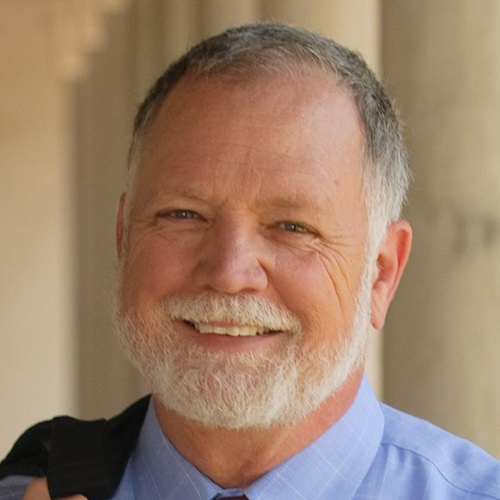
Dr. Thomas Sant, CF APMP Fellow (Class of 2001)
Founder
Hyde Park Partners
Bio
Tom Sant began as a college professor but began doing writing assignments for local businesses in the Cincinnati area. He was asked to help with various proposals by teams at the General Electric Aircraft Engine Business Group and saw that the submissions needed to be more persuasive. After a string of wins, he was asked to write and rewrite large portions of GE's submission to power the Air Force's F-15 and F16 fighters, a contract with a total value of over $17 billion. This victory led Tom to leave academics and begin providing training classes to a wide range of companies on proposal writing methods. One of his largest early contracts was to train all of AT&T's mid-market sales force. The key concepts he taught were (1) persuasive structure, specifically Needs/Outcomes/Solution/Evidence; (2) quantified value; (3) personalization to the decision maker; and (4) clarity.
During an engagement with Cincinnati Milacron, Tom recognized that much of the content of proposals could be pre-written and stored in a database for use in various combinations, building a highly personalized proposal out of pre-existing components, much like building with Legos. This idea became the basis for the first iteration of his proposal automation software, which was greeted by AT&T's sales force at its initial presentation in 1993 with a standing ovation. The software, which was then called ProposalMaster, was followed quickly by RFPMaster and PresentationBuilder, tools to help the proposal team and the sales force win more business faster. Tom's company introduced the first web-based proposal automation tool in 1995. (This software suite is now known as Upland Qvidian.)
In 1992, Tom wrote "Persuasive Business Proposals," now in its third edition. Translated into nine languages, it has become a standard text used by hundreds of thousands of business people around the world. He followed this book with two others, "The Giants of Sales," an analysis of the four dominant sales methodologies, and "The Language of Success," a study of the techniques that lead to greater clarity and impact in writing.
Tom has taught classes in proposal writing, presentation skills, and the creation of value propositions in more than 50 countries. He has also delivered keynote speeches for a wide variety of conferences, including Microsoft's global partner conference. Over the years, he has presented more than thirty times at APMP conferences.
For many years, Tom also performed stand-up comedy on the Funny Bone circuit at comedy clubs around the Midwest. He's the author of two mid-grade novels and is an avid golfer in his free time.
What does being an APMP Fellow mean to you?
I am deeply grateful for the professionalism that APMP has brought to the field and proud to be a representative of the organization as one of the first three Fellows. In addition, because so much of my work focuses on the commercial sector (as opposed to government bids), I felt that the recognition of my work also helped to broaden APMP's focus in the early years. Finally, I have met many wonderful, talented people through my association with APMP and am pleased to have an ongoing relationship with the organization.
What's your best memory from attending an APMP event?
There are many memories, but one that is particularly amusing happened at the national meeting in Albuquerque. My client, the head of proposal operations for Accenture Europe, had flown over for the meeting, and I invited him to play golf. In paying our green fees, I told the folks in the pro shop that he was the national champion of Belgium. (In reality, he had never played golf before.) Everybody in the pro shop and restaurant came down to watch the "Belgian national champion" tee off. Needless to say, he topped it about 20 yards down the fairway. At that point, I turned to the crowd and said, "Remember, Belgium is a pretty small country," and we headed off.
What advice do you have for a proposal professional entering our field?
Recognize that your greatest value lies in your ability to think strategically about deals. Merely manipulating text to create a compliant answer is not enough to set yourself apart. Think like a business person, focus on establishing value and differentiation, seek to learn as much about the customer as possible, and you will create truly excellent proposals.









